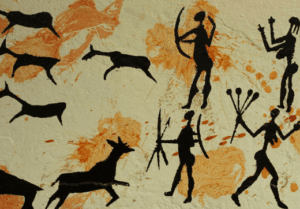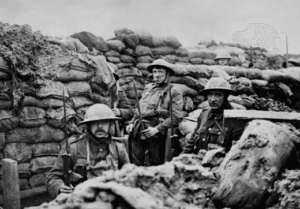History is focused on important people and their ideas. While it is quite easy to find out about kings and queens, epidemics, and battles, it is much harder to discover what the past was like for average people.
Now we live in an overwhelming, fast-paced, impersonal world, but we can learn some things from past societies about money, work, love, life.
The History of Time

What would be our world without time? We couldn’t arrange meetings also wouldn´t know how old you are. Time seems like a natural part of things but wasn´t properly measured until the ancient civilizations needed a way to track agricultural cycles.
Since then, there have been three major developments that formed our modern time.
First came the invention of a mechanical clock back in thirteenth-century Europe. It was used by monks to know when to pray. Clocks also sooner or later were installed in town centers, and shops scheduled their operation hours around them.
In 1370 a clock was built in Cologne, Germany; it dictated the start and end of worker days and a one-hour lunch break. Sounds familiar?
While this communal time was first used, it became a form of social control in the Industrial Revolution. An example would be Josiah Wedgwood with his namesake pottery manufacturer. In the late eighteenth century, he introduced the clocking system to the workplace. Wedgwood monitored and maximized efficiency and punished those who couldn´t keep up.
This growing change of time leads eventually to the world we know today, where everything moves faster, no matter if transport, technology, or food. Even the language reflects the commercial idea of time, as it’s something that can be “borrowed” or “wasted.”
Better time management strategies can be useful, but they only deal with the symptoms, not the causes.
A big problem is our short-term thinking because society is overly concerned with the immediate future. But there is another approach: Vikings believed that their actions would be judged by ancestors and descendants alike, so they acted with great consideration and without haste.
Perhaps slowing down could help a lot like the novelist Gustave Flaubert who took five years to write Madame Bovary.
Were Civilizations barbaric people?
Vikings had similar to other pre-civilization image of barbaric people.
In prehistory time, the murder rate was much higher, as many more were victims of war and murdered.
But was it always the case? Did we really live and behave the same way before we became civilized?
Only think about the stone age where artists painted facts and fiction, history and myth on the cave wall. These cave paintings give an insight into the nomadic period over ten thousand years ago, where no violence or war has been discovered.
While there were hunting scenes and death which show skeletal remains, it doesn´t prove human violence as it could easily be with conflicts with animals.
Anthropologist assumes that in the nomadic time, violence among groups of wandering hunter-gatherers rarely happened. Instead, they worked together and learned from each other.
Those that were good at collaboration stood the best chance of survival and had the most children. Nature didn´t favor the strongest or most selfish but rather the most cooperative.
The white of our eyes is also proof of the ultra-social nature. It allows others to know exactly where our attention is directed; this enables trust and cooperation. Animals have much more effective poker faces with their tinted eyeballs.
It is not about survival of the fittest but of the friendliest. And this shows not only in our appearance but in our intelligence and the way we learn. Individually we aren´t so smart; however, when babies are compared to monkeys, there is one category of intelligence where babies perform better, which is “social learning.”
We are good at learning things from each other, which is why cognitive and cooperative abilities belong together.
Why people become violent with each other?
Despite these positive features, we are able to commit violent acts. While some concluded that human nature is base and barbarous other philosophers like Jean-Jacques Rousseau reach the opposite conclusion.
In his view, humans aren´t natural evil and corrupt rather fundamentally good but corrupted by civilizations. As archeological investigations reveal that humans build the first military forts near the end of the first ice age as societies settled more.
It was also when archers began appearing in cave paintings, and skeletons from this period showed clear evidence of human violence.
When you think about it is pretty obvious why we become violent because there was land to fight over and crops and food to defend. People suddenly possessed property.
These properties made us suspicious of other people. In the time of hunter-gatherers, there were loose definitions of what belonged to whom. Also, there was no clear land because wandering hunters had no fixed tribe.
When they encounter new groups, they simply merged with them. All these things changed when humans started settling down.

The growth of violence can also be linked to hierarchies within civilizations. At first, it was difficult for rulers to remain in power as nomadic life didn´t allow inequality. There is some evidence that suggests hunter-gatherer societies had a shame-based system to hold every individual in check. So whenever someone attempted to control others, the group would shame and peer pressure the person to cut them back down to size.
This also changed when powerful people couldn´t be longer dethroned with gossip and teasing. Leaders had suddenly warriors that help them remain in power. And when the rulers commanded vast armies, he couldn´t easily be removed by exposing with a comment or tweet.
Why is there so much negativity in the world?
No matter what political side you are on, most have a negative outlook on humanity and the world. But why seems everything to be so negative? And why we think people are egoists?
The answer is where most of us get information: the news. An event is often only newsworthy if it is extraordinary, which are, in most cases, disasters, an attack, or a natural catastrophe. You’ll always see headlines about what bad things are happening in the world.
This results in all of the negativity around the world, and it turns people into pessimists. The news is negative by nature, and the showed stories strengthen our belief in the bad.
In medicine, if someone has chronic pain, sometimes the patient gets a so-called placebo with no positive or negative effect on the health. But the patient doesn´t know this, so when he thinks positively, it can help him feel better and get cured.
While Nocebo works the other way around, it makes you feel worse when you think it will have a negative result. The news is similar to a nocebo.
Not only can the news bring a pessimistic self-image also fiction. An example would be the book Lord of the Flies by William Golding, who won a Nobel Prize with it.
Golding told a “true” story about how children would behave if they were stranded on a deserted island. In the novel, chaos breaks out, and several children died. He was celebrated because he showed what people would do without the law that prevented them from attacking each other.
Rutger Bregman doubts the truth of this story and researched what really happened to the children. He found a Lord of the Flies story of 1966 of six children stranded on a remote island in the South Pacific for 15 months.
But they didn’t act like the kids in Golding’s novel. There was no anarchy; rather, the children made a pact to allow no disagreements. They managed to start a fire and keep it burning for over a year. And after the rescue, they remained good friends.
So what story captures the actual truth?
This story isn’t the exaptation and shows humans aren´t evil by nature. Many think if we have no state rules and laws, the world would constantly be a warzone.
Where our Beliefs come from
Everyone has some sort of belief, like be not eating meat or their religion. But where come these beliefs from?
They are the personal values which we judge how good or bad a particular action was. Our beliefs shape our relationship with the world, but we rarely question their validity.
Often our most fundamental beliefs are simply from our family and environment. Many are religious raised; however, at some point, leave their religion while one-third of people return to it later on. It shows that what we grow up with has an effect on us that likely lasts a lifetime.
Some people believe the importance of their own country’s superiority in terms of natural beauty, cultural achievements other numbered things. But it is a matter of chance where you are born, so the likelihood you are born in a superior country is extremely small. It is rather a cultural idea from those around you.
Nevertheless, it is important to question what you are taught and be able to change your belive. This will help you find alternative ways of life and have your own moral compass.
Were German soldiers brainwashed?
Research revealed German Wehrmacht soldiers fought twice as effectively as allied soldiers. Why did German soldiers continue to fight even after defeat?
Many think that they were brainwashed with the ideology to love the fatherland. Allies used this ideology for their own propaganda. But even countless flyers with the message “your position is hopeless couldn´t stop the German soldier’s motivation.
They ignore these messages, but people realized that they weren’t brainwashed when they talked to captured German soldiers. They fought so long because they didn´t want to abandon their neighbors and friends. The Nazis aren´t always so fanatical devoted to the cause; rather, they were simple comrades and good friends. German generals promoted camaraderie in their divisions.
So is there a possibility that even war criminals are driven by communality and selflessness? Yes, because they were guided by empathy, this may seem wrong, but our empathy can sometimes make us blind to others’ suffering.
Empathy on the battlefield
We can only feel empathy for a small number of people around us that we can smell, feel, and hear. However, this leaves a lot of others out because empathy excludes more people than it includes.
There are two sides of empathy; it ensures that we fight for our family, friends, and neighbors, but it also enables us to kill for them. When it is a matter of life and death on the battlefield, the assumption is that it resorts into violence.
However, this is false; we don´t become barbarians on the battlefield. Even in extreme situations like war, humans generally find it difficult to pull the trigger and kill the other person if face to face with the enemy.
When you look into death statistics of British soldiers in the Second World War, the vast majority of them, 75 percent, were killed by bombs or mines. It means relatively few were shot by someone who looked at them in the face.
Even more difficult than shooting is to stab people. At the battle of Waterloo, fewer than one percent had wounds from a bayonet.
Modern series and films suggest that it is easy to kill another person, but it is not most people couldn´t kill someone.

An example would be the famous event from the first World War where on Christmas Day in 1914, German and Births soldiers defied orders and suspended fighting. Instead, they celebrated by drinking, exchanging gifts singing Christmas songs together in the trenches.
Commanders needed to force their soldiers to resume fighting. Even though the threat of prison sentences and worse, soldiers continued to send each other secret messages. These messages included when the next attack would occur to assure each other they would aim their fire too high.
Most of us don´t often become violent, maybe only during wartimes. So we are not as bad as we might think, and when acknowledged this, we may develop a new and better society.
Are we Selfish?
We have all done something selfish, be it taking the last piece of pizza or forgetting to donate for a friend’s benefit.
While selfishness can be a natural human quality, it doesn´t mean we are all selfish. There are many historical events and scientific research that shows empathy comes naturally to people.
Our ancestors may have evolved by showing empathy because it helped them develop communities and improve their survival chances. Also, other animals like dolphins and elephants display empathetic behavior.
There are three ways to facilitate empathy:
- Experience different cultures, people, nature, and more
- Conversation with like-minded people to learn and teach them
- Social action by helping in the community around you: For example, Thomas Clarkson who raised awareness of the horrors of slavery in nineteenth-century Britain by comparing it to naval impressment. It was a common practice where men were effectively kidnapped and forced to serve in the Royal Navy. This comparison led to a public understanding of slavery, leading to Britain’s eventual decision to abandon it.
When you embrace and engage empathy, you can both change your perspectives and positively affect the lives of others.
How criminals become more responsible
But if we continue to assume that people will only behave morally under threat of punishment, society will not improve. And more of the population will be locked away like in the United States, where inmates are often in small cage-like cells and may only get out for one hour per week.
Is this really the treatment that rehabilitates people that are criminals, and does it promote moral behavior?
As an example, in Norway’s Halden Prison, there is a less punitive approach. Each inmate has its own large room with a flat-screen TV. Also, there is no gross cafeteria food because the prisoner cooks for themselves. In their free time, they have a climbing wall and other activities they can do. And if the weather is good, they barbecue together with guards that aren´t even armed.
Sound too good to be true that Norwegians who committed crimes are practically rewarded with a comfortable stay in prison. But ask yourself if you would rather have a neighbor released from a typical American prison or someone from a modern Norwegian one?
Statistically, the answer is clear criminals in the USA have the highest recidivism rate of 60 percent, while Norwegian prison only has around 16 percent of returning prisoners. This also saves Norwegian prisons a lot of money each year.
The idea of the Norwegian model is to treat inmates as they are responsible, so they learn to get more responsible. And this concept seems to work. Once we believe there are more good people, everything changes. If we are able to do that, we can start improving not only prison but also school business and even entire governments for the better.
Neither civilization nor fear of punishment prevents violent and selfish behavior. But we are not egoists and murders; rather, we are friendly and cooperative, especially during crises. There’s no better time than now to strive for a more positive view of humanity.
How will new Technology impact our jobs?
More and more machines will impact many jobs. New innovations like Artificial Intelligence will make everything more productive and efficient, which leads to people losing their job.
Technology changes and the age of the internet means that tiny groups can build a vastly successful business. In the late 1980s, Kodak employed 145.000 people and got bankrupt in 2012. Meanwhile, in the same year where Instagram was sold to Facebook for $1 billion. Instagram only had thirteen workers at the time.
It shows building an online business is one of the best and cheapest solutions to earn money now. But computer power can replace our brainpower at a much faster rate. There will be big consequences when we hit the point where artificial intelligence revolutionizes everything.
Also, major economic changes will result in a small ultra-rich group enjoying their fabulous lifestyle. While having enough power to control normal people. The big problem is companies like Amazon, Google, and Facebook will get bigger and bigger while doing everything to buy or bankrupt their competition.
Our society will get more and more divided because the people who haven´t learned a skill that machines cannot be master are left behind. There is a need for better education so our children can prepare to compete with the technology changes and innovate more. But when the school system is as bad and toxic as in many countries, there will be no bright future.
To get an equal solution for the rich and people their needs to be higher taxation for the wealthy people and companies. Otherwise, the gap between poor and rich grows further and further.
How our Income changed over time
The average income has changed a lot; for example, the average Italian earned around $1.600 in the year 1300. Six centuries later, with printing, a steam engine, and gunpowder, the income of a normal Italian was still $1.600.
Now an average Italian earns 15 times as much, and the global economy is 250 times the size before the Industrial Revolution.
Certain jobs bring wealth and prestige, like a lawyer or being a banker. But other jobs that are really important, like a nurse or a garbageman or teacher, are badly paid.
The problem is these jobs create little wealth while lawyers, for example, earn much more. Of course, the rule of law is essential, but the United States has 17 times as many lawyers as Japan. But this doesn´t make America’s legal system better.
There needs to be a change in which valuable jobs should create wealth. Especially social work which no machine could replace should be better paid now with corona more than ever.
It would positively impact society to make higher taxes for high-paying jobs that are not socially beneficial. Higher taxes are good places to start if we want more nurses than lawyers and better teachers than bankers.
Why are we so stressed?
Billions of humans have reached stability and comfort. Centuries ago, hunger was the most fundamental part of most humans’ lives, but now more people suffer from obsessing than starvation.
Our technology lets us live longer than before. For instance, robotic legs ReWalk to help people walk or a brain implant Argus II restores some eyesight to people with genetic blindness.
We are more secure, healthy, and rich than ever before, and humans that lived in the Middle ages could only dream about this paradise. So why are we so unhappy and stressed?
Of course, the Pandemic is a big reason but is this all.
The economic growth in the nineteenth and twentieth century lead to some reduction of working hours. One of the first was Henry Ford, who discovered that shortening employees’ workweek increased their productivity.
But in 1980, these reductions in working hours stopped, and the workweek in countries like the UK, Australia, and Spain stayed the same.
It is possible that by 2050 we could work 15 hours or less in a week while earning the same as we did in 2000. Reducing the hours of work can offer a variety of benefits.
Most people would rather have two work off less than have two weeks off salary. Working less helps reduce accidents in the workplace, cutting stress levels and emancipating women. When men work less, they can also do more unpaid work at home that often only women do.
A shorter workweek would also give us more time we need for a better life. Whatever that means spending more time with family and friends learning something new, or getting fit. While this needs to be a priority, our society doesn´t always get its priorities right.
Most people stop dreaming big or searching for their passions. The focus is no longer on making life better rather than getting rich and famous and buying the newest things.
Why giving cash works
The government and NGOs should know best what poor people need. So they give villages in need schools, cows, or solar panels. But donating a single pregnant cow that provides milk does not help when nobody knows how to milk, and such a workshop could cost $3.000. It could be a five-year income of the poorer parts in Africa, for example.

This is where a Charity like GiveDirectly comes in, which gives money with no strings attached. As an example, a man who is earning $2 a day was given $500. He used it to buy a motorcycle, and a month later, he earned $6 to $9 a day as a motorbike taxi driver. This money helped him transform his life.
Give directly follow a good principle by giving cash to poor people because they know better than anyone else what they need. It makes giving no stringed attached money the best way so they can use it for their needs.
Many organizations think giving out free money will make people lazy.
But there is plenty of evidence that giving cash works. For instance, in Liberia, was an experimental study with alcoholics and known criminals handed $200 condition free. Three years on, they invest in medicine and food and even start small businesses.
It turns out poverty is not about stupidity, laziness, or bad decisions rather about a lack of money. This also applies to the Western world.
While now, our jobs are threatened through globalization and technology to find something that helps everybody. A good idea would be to introduce Universal Basic Income or UBI, where everyone gets enough money to live. It is tax-funded given with no condition, and the recipient doesn´t need to work.
This isn´t a new idea President Nixon already planned on giving every family $1.600 a year or $10.000 in today´s money. However, facing political opposition, congress abandoned the idea.
It seems thinkable then, but now UBI is possible. Though the UBI opponents have two core arguments against it:
· It is fundamentally unaffordable. For example, it would cost around $175 billion, according to a British think-tank study. It is under 1 percent of the US Gross Domestic Product( time-based monetary/market value of all finished products and services of a country). In comparison, the wars in Afghanistan and Iraq cost alone $4–6 trillion.
· The second argument would be that with free income, everybody would become lazy. Not only would mothers and fathers of young children benefit from it when they can cut back their working time, but it is also for people who want to pursue further education.
UBI could help people make more good decisions similar to the men in the GiveDirectly example.
How consumerism started
There was a time until the eighteenth century were a consumer was wasteful — consumerism developed with industrialization.
During this period, more and more people were able to get wealthy. The consequence was, more products were needed, so they expanded their production to meet the demand. These developments redefined our thinking of money, and material possessions became status symbols of wealth.
In the late 1800s, Bon Marche, one of the first department stores, opened in Paris. By buying large amounts, they were able to keep prices down and made luxury goods more accessible. The building complex also hosted concert art exhibitions and included a restaurant. It was both a social gathering and, in a way, a modern shopping mall. Buying new things became a leisure activity.
Today advertisements have reduced the desire to choose between products and brands. Many feel the need to buy the latest and most expensive things simply to stay up-to-date with current trends, which drives us to want to pursue more and more money.
But this lifestyle comes with a lot of stress. Maybe simple living would be a refreshing alternative.
Take Herny David Thoreau, a man who lives in the nineteenth century Concord, Massachusetts, where growing consumerism was around him. He moved to a woodland cabin just outside of town. For two years, he lived off the land by catching and growing his own food. Spending most of his time at leisure and recording all his experiences in the book Walden.
When he returned to living in the town, he worked part-time, claiming he had earned enough money in six weeks to survive for a year. It allowed him to pursue his hobbies freely. Thoreau shows us scaling back our spending while focusing more on our pleasures, and passion can foster wealth money can´t buy.
How the modern Travel industry started
In the nineteenth century, an English preacher Thomas Cook organized a trip from Leicester to Loughborough for poor workers to attend a meeting. Five hundred people took part, which inspired him to organize further tours to Europe with a goal to open people up and expand their worldviews.
Unfortunately, his son that had less good ambition, took control. He focused more on wealthy clients and expensive routes, leading to the modern travel industry we have today.
But there is much more to travel than a simple leisure pursuit.
The first is the pilgrim, a religious traveler who travels towards a symbolic destination and follows a potentially difficult route. These travels have a profound effect on both life and the lives of others. It helps to build a connection and be open to new ideas.
Another example is the nomad. Many see a rather exotic appeal in a wanderer’s life moving from place to place, seeing the world. But it isn´t about the people’s way of life instead of more about traditional activities like camping and spending quality time with family and friends in nature and traveling through different environments.
There is also the explorer who looks for what is out there and wants to experience new cultures, people, and landscapes to get new worldviews.
Modern tourism began with Baedeker guidebooks in the 1800s, which made a definitive list of must-see sights. It, unfortunately, standardized most people’s travel experiences. But it is better to discover and experience people and places on your own terms without a checklist someone else made.
Why Nature is important for us
Now more than ever, people want to feel and experience beautiful landscapes or wildlife. But why are we attached to nature?
Nature nowadays is the source of three things beauty, psychological health, and natural resources.
The romantic movement and industrialization painted nature as a frightening yet beautiful thing. Before, forests were often feared and considered mysterious places that were dark and dense and filled with evil.

But this fear of the natural world wasn´t always the case. In fact, we are drawn to nature and actually gain calmness and healthy from it. This explains why we feel the need to get out of the city and have plants in our homes and offices. A study of patients in Pennsylvania found that those with windows looking to nature recovered quicker after gallbladder surgery than those without one.
However, now nature is more a commercial resource because, with industrialization, we reach a point where natural resource consumption is alarming.
Nature has once governed us, and the man-made climate change made us the govenever of the natural world.
But it not too late; there is still time for a change. When we swapped carbon emission heavy flights to the Caribean to more local regions and use more renewable energy, it can help a lot. While now traveling to far places isn´t easy, it is a good idea to explore you near nature without destroying it. There need to be major changes because we are on the brink of losing our nature forever.
How to discover your Purpose?
If you build a piece of furniture or even a Lego set, it can be frustrating at times, but there is also something deeply satisfying about building something from start to finish by yourself. Before the Industrial Revolution, almost everything was produced by individual craft people.
But this changed in the eighteenth century where the economist Adam Smith argued the best way to increase productivity was by dividing complex work into stages. He brought the pin factory model where individual production stages were divided among workers, which increased productivity from 1 pin to almost 5000 a day.
While it increased productivity, it also made people less engaged with their work. If you never see a finished product, how can you feel good about your role?
Four purpose templates can help for more meaning in your work.
The first thing is to have meaningful work goals. For example, take Psychotherapist Viktor Frankl, who lived both world wars and survived multiple Nazi concentration camps. He found out that other camp survivors generally had goals beyond survival, like a scientist who wanted to finish writing his book series.
Secondly, it useful to find motivation in the desire to help others. In the twentieth century, Albert Schweitzer abandoned his musical and academic careers to become a doctor. It later awarded him the Nobel Peace Prize for his charitable work in Africa. As he followed his sense of duty, his life and work had a purpose.
Earning respect and recognition also gives more purpose. Herny Ford argued that his employees wouldn´t mind these production lines because they work as long as their wages were high enough. The companies pay workers more money and less respect.
But take companies like the UK drink Innocent, which regularly are voted as one of the best places to work. This not only because of the payment but also how employees are treated. Workers receive perks like weekend excursions and free Friday afternoon drinks.
Lastly finding engagement in your work by using your full skill set. Most workers are today, specializing in a small range of tasks. But during the Italian Renaissance being a generalist like Leonardo da Vinci was considered as the ultimate achievement. So if you do many things, you find more sources of purpose.
How to become more Creative?
Maybe you felt the joy of learning to play your favorite song on the piano or baking a delicious cake for your whole family. No matter what it is, creating something can be a great pleasure.
The word creativity comes from create and is Latin for “to make or produce.” It is a vital part of our evolution.
You ever heard that creativity is not for everyone? If so, this idea is rooted in the Renaissance. In medieval Europe, the thinking was that only God could create from nothing. And some humans were simply skilled imitators and artisans.
But in fifteenth-century Italy, the “genius of man” who could create and not just copy beautiful was declared. This helped people become more and more comfortable with expressing their individuality.
One particular artist called Michelangelo produced extensive and enormous popular work that earned him a reputation in his lifetime, which still persists today.

Even now, he embodies “God-given talent,” which is the idea that someone possesses skills so unique that it could only have come from a higher power.
The consequence is that many people today believe you either have artistic talent or don´t and that creativity can´t be learned. To rediscover it, there needs to be a craftsman mentality for our existing work.
Modern DIY is a reflection of these needs, and it is the hands-on creativity we should cultivate more.
How to find Love?
Finding love now is more tricky than it has ever been. Many spent days looking through profiles on dating sites and countless evenings on awkward and unsuccessful dates. And in the end, we are where began: alone.
But why is it so hard to find your special someone?
It might be the case that we are to narrow minded when it comes to love. Many expect a single individual satisfies all our emotional needs. However, these emotional needs are more complex and diverse and usually too much for one person to meet.
You might look at the ancient Greeks, who had a much better approach to love:
- Eros: fiery, passionate yet dangerous love
- Philia: platonic love between friends and colleges
- Ludus: playfulness with new lovers or children
- Pragma: deep understanding which grows over time between partners
- Agape: selfless, charitable love for fellow humans
- Philautia: self-love which is either a positive acceptance or a negative self-obsession
So rather than relying on one partner to satisfy all the needs, the Greeks believed different individuals could fulfill each role. It allowed them to spread their emotional needs across a wide range of relationships, making it easier to find love.
But this changed with Arabia’s medieval literature, which made the passion of eros between two lovers and the joining of their souls popular. In Europe, this idea also spread and was combined with selfnesses and chivalry. It becomes a norm for knights to perform noble and selfless deeds in the name of passionate love.
In the sixteenth century, the Dutch made these passions essential to marriage. It was previously only a contract of alliance which combined Philia and Pragma that grew between spouses.
Finally, in the twentieth century, capitalism brought the narcissistic Philautia, where love becomes tied with consumable materials.
To find true love, it is time to undo over two thousand years of history and look for various individuals to fill your emotional needs.
Life is a Gift
Death was once a part of daily life and Latin momento mori for “remember you must die” was once an important saying. It was displayed on skulls and portraits in churches to remind people of their mortality and equality in the face of death.
Medieval cemeteries used to be a social space where children played and tradesmen are selling their wares. This attitude led historian Philippe Aries to conclude that the middle ages were probably the most in love with their lives.
They forever were facing the risk of death from violence, hunger, and diseases. It gave people the sense that life is a gift to care deeply about. Today, you can see parallels with people with a near-death experience; they often changed to live life to the fullest because they stared death in the face.
But most of the Western culture has not such an attitude towards death anymore. It was common to die in your home surrounded by family and friends, young and old, only a century ago. However, despite that 70 percent of people would like to die at home, over half will likely die in hospitals, an environment where children are often kept away.
Funerals have also become more modest where processions are replacing by efficient services and lesser stranger participation, which was almost expected but unthinkable today. The number of cremations increased at a lot though cremated bodies often don´t get any monument or are completely removed from view.
When we no longer feel close to death, it can distance us from life. It may be a consideration to have open conversations about death and public rituals to cherish life.
Learning from History
In modern times living can be hard to master, but if you remember how our ancestors lived, you can rediscover and use some helpful practices. Start by challenging yourself and your beliefs, rethink how you love and find your inner creative and experience the nature around you while only spending money on what you really need.
Don´t follow other lifestyles and develop the freedom to find your own way that works best for you.
Hi,
It is very interesting topic, and you provide good insights. As a race we have come a long way but are we moving away from that what makes us truly human. Social Media has reduced our physical social interactions, a person is judged not by their actions but by how many followers, we seek acceptance through likes.
We put value to intangible things like NFT, already people are paying money to unplug themselves from the “grid”. That will become more popular in the future I think.
Thanks
Nav
Hi Nav
Thank you for your comment. Yes, while social media connects us more, it can also reduce the time we spend in person with each other. Judging people by the number of followers and comparing themselves to others is a big issue in our society.
Social media is an interesting topic on which I also wrote an article about: Why is social media bad for our mental health?